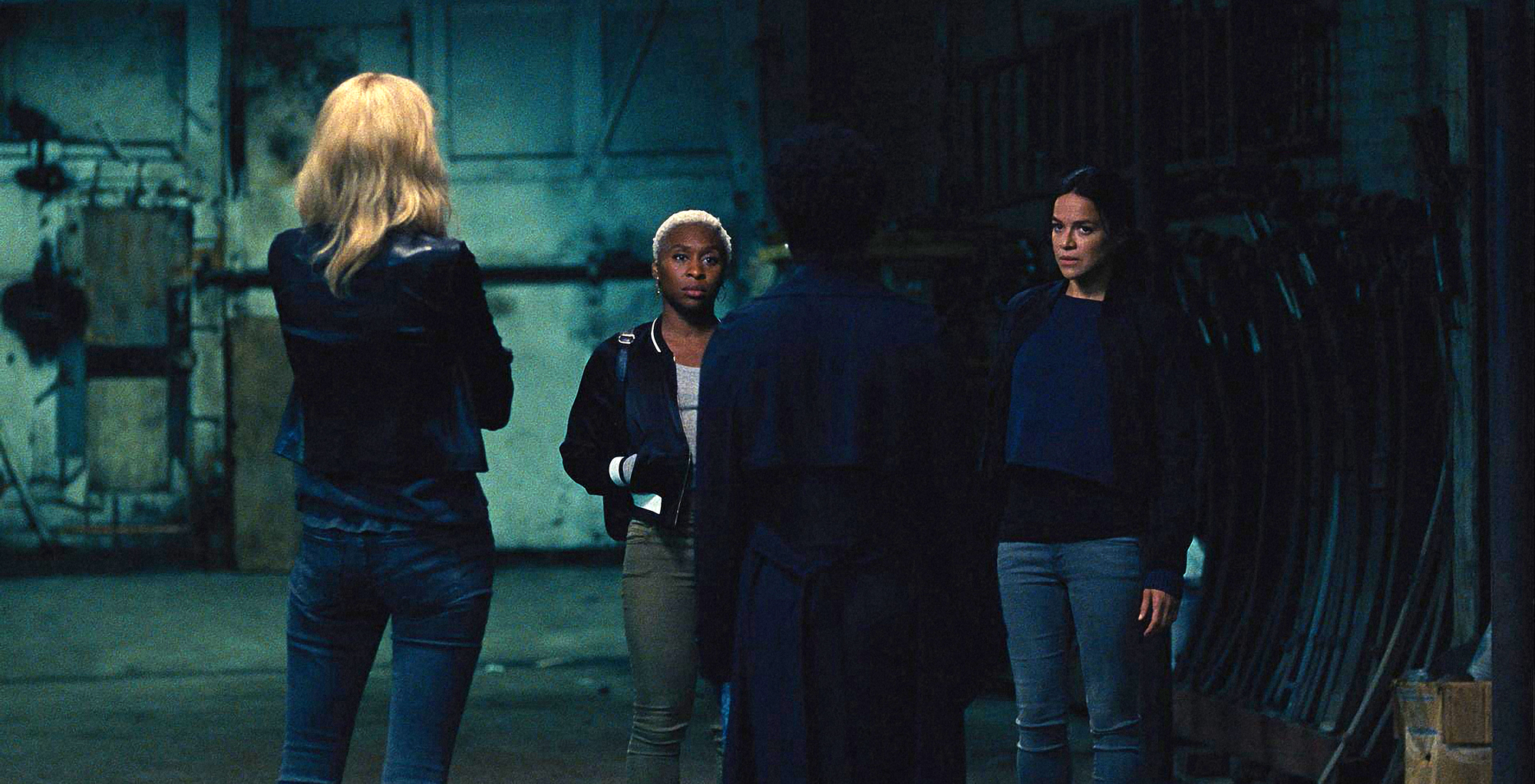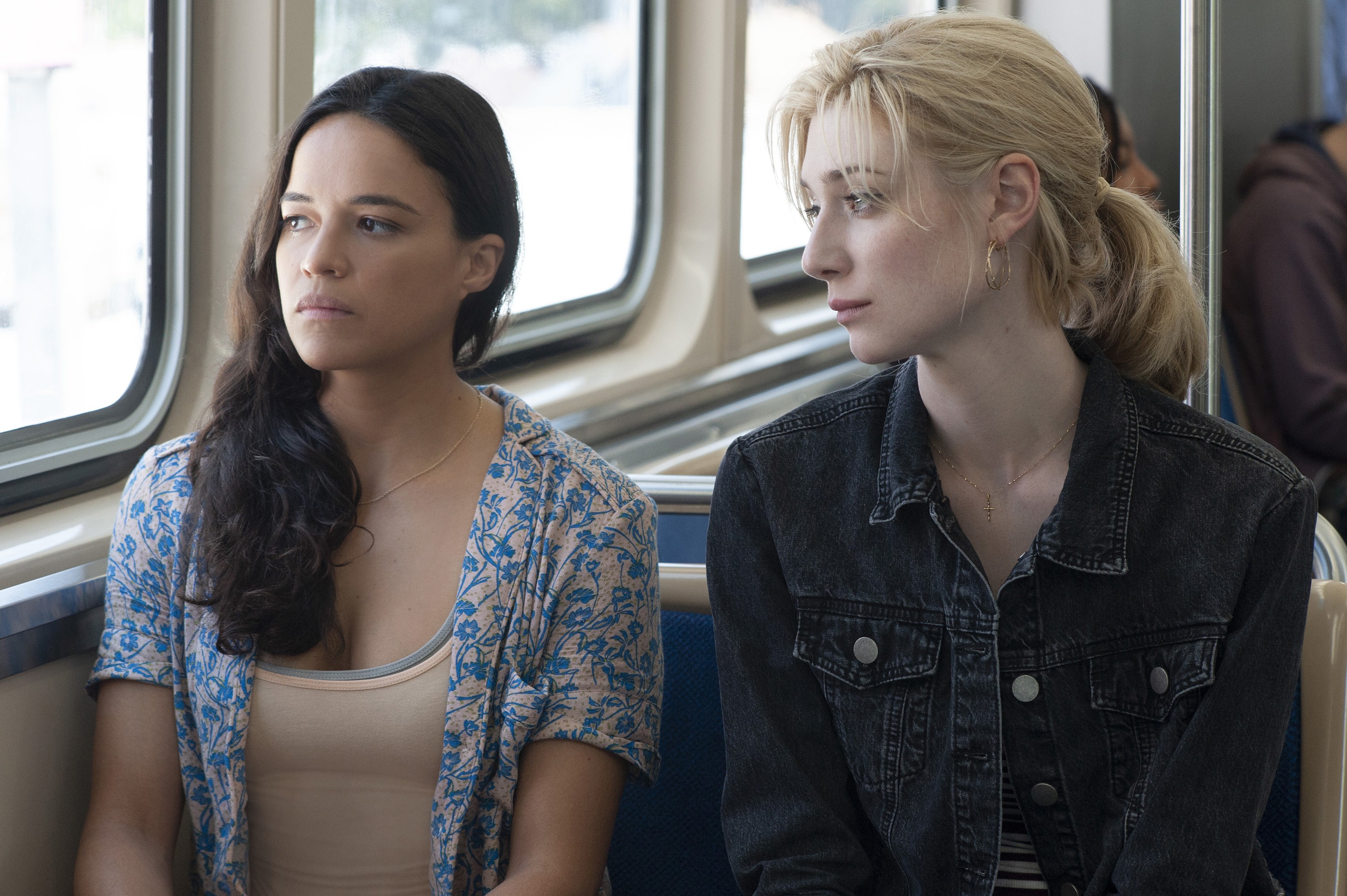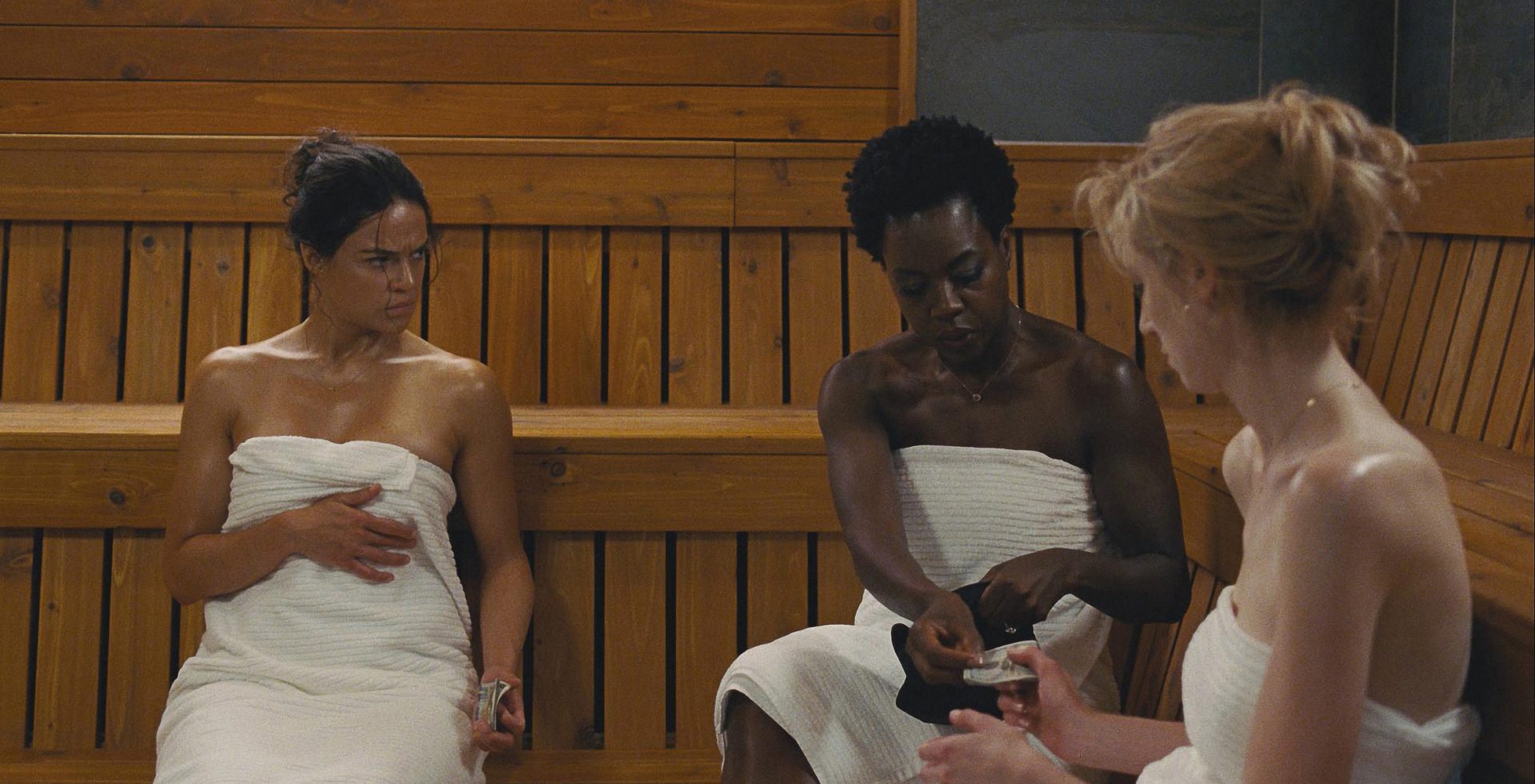Give it a few months, maybe years, and the film community is almost certain to look back with remorse at the near erasure of Steve McQueen’s Widows in the 2018 awards conversation. With an ensemble cast led by Viola Davis, featuring performances by Michelle Rodriguez, Daniel Kaluuya, Liam Neeson, and Elizabeth Debicki, McQueen’s fourth feature film probes the nature of human resilience, this time engaging forthright with contemporary politics and a society that actively discounts women. Though firmly a heist film in its white-knuckle delivery, and a thriller in its depiction of violent menace that trails the titular “widows” throughout, Widows intelligently weaves these genre elements with thoughtful characterization that speaks to the familiar experiences of women black, brown, and white, who are often pushed to extremes in their struggle for basic dignity and financial independence.
In a change of pace from the plainly empowering physical roles she tends to embrace, Michelle Rodriguez is practically cast against type as a mother of two and shop-owner whose livelihood is threatened when her husband’s betting habits come back to bite her after his untimely death in a heist gone wrong. Persuaded by the intrepid Veronica (Davis), whose husband masterminded the failed scheme, to this time carry out the plan to success alongside the unexpectedly adept Alice (Debicki) and hustler-extraordinaire, Belle (Cynthia Erivo), Rodriguez’s Linda is a portrayal of complexity and vulnerability heretofore unseen in the actress’s filmography.

Though McQueen was warned against casting Rodriguez due to her rumored difficulty on set, the filmmaker, who himself has been similarly accused, insisted that she was the woman for the part, and managed to convince the initially skeptical actress to play a role in which strength is gradually discovered, instead of immediately apparent. In an interview with the Hollywood Press Association, Rodriguez confessed to historically rejecting the sort of dramatic roles that have “truthful [women]. . . laying their heart out into the world and having it tramped on and stepped on by men and women alike.” While she considers her past work to have “activist” ends, Rodriguez sees her role as Linda to be a unique instance of “putting down [her] sword” and finding the “humanity in a story” that speaks to her roots in an unprecedented way.
Through the film’s opening scene, in which a suggestive open-mouth kiss in bed is collapsed with a smash cut to the roaring sounds of gunshots and a screeching getaway van, two facets of the brash masculine are probed: the obviously criminal and reckless one of the action-movie imaginary, and that of a masculinity that treats women with deceit and neglect. Alice takes breakfast with her husband bearing the black eye he gave her the night before, while Linda argues with hers over his chronic absence, the scope of her insignificance marked as he walks away in annoyance. The story begins in the aftermath of their husbands’ deaths, when the women realize that despite the pretenses and macho posturings of their men, they’ve been left wholly unaccounted for, broke and fundamentally alone.

Rodriguez’s scowl and steely gaze function naturally as part of her character’s tough wardrobe in movies like The Fast and the Furious franchise, but as Linda, these signature features also convey a pained restraint in response to emotional standoffs throughout the film. Powerless against her husband’s rivals, who seize control of her shop after her husband leaves her to deal with the consequences of unpaid debts, a mounting sense of tension and frustration paves the way for justified radical action. At her husband’s funeral, in a confrontation with her mother-in-law in Spanish, Linda silently takes her elder’s caustic berating. Latinos are often known for their large communities and their strong family ties, yet Linda’s sole family interaction is pointedly with a non-blood relative who quickly dismisses ties and essentially renounces her former daughter-in-law, honing in on the extent of Linda’s solitude and the scope of her self-reliance at this juncture.

Widows works brilliantly as a power ballad of feminist tenacity, featuring gripping action sequences choreographed with deft control. But what McQueen’s latest brings to the table that distinguishes it from other well-made heist flicks is the way it spotlights feminine agency and sees it take shape in response to a life-and-death ultimatum, one that should feel eerily familiar to the challenges that real women confront daily. Like Michelle Rodriguez’s dramatic transformation here, Widows’ feminist power is not derived from empty physical flexing, but from a survival instinct that meets the seemingly impossible head-on, and that humbly recognizes the need for community and solidarity in attaining freedom.







